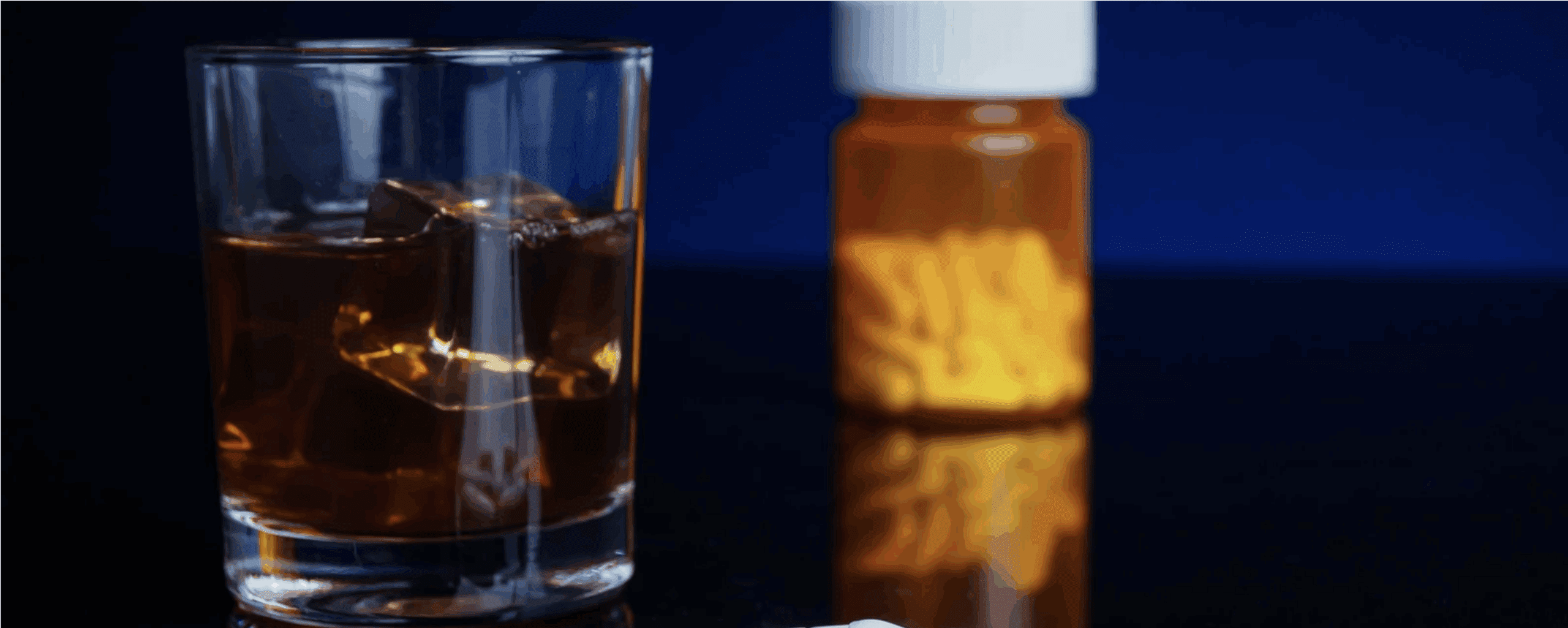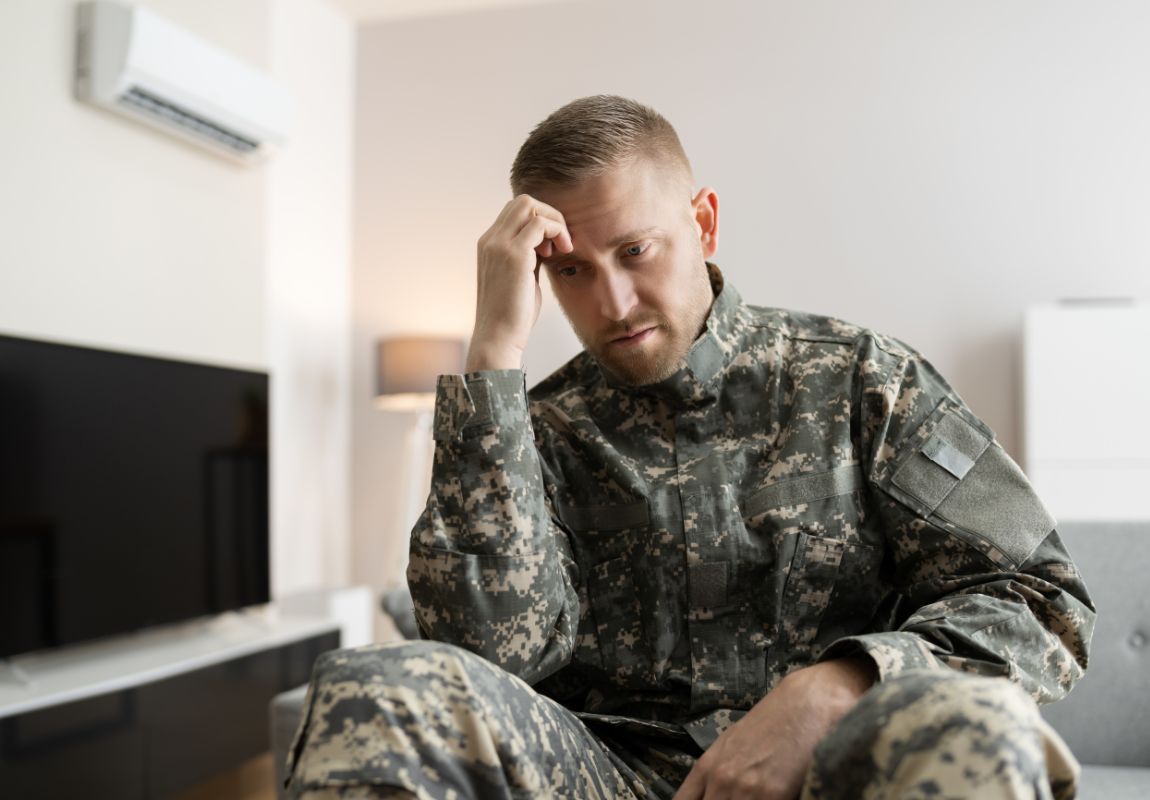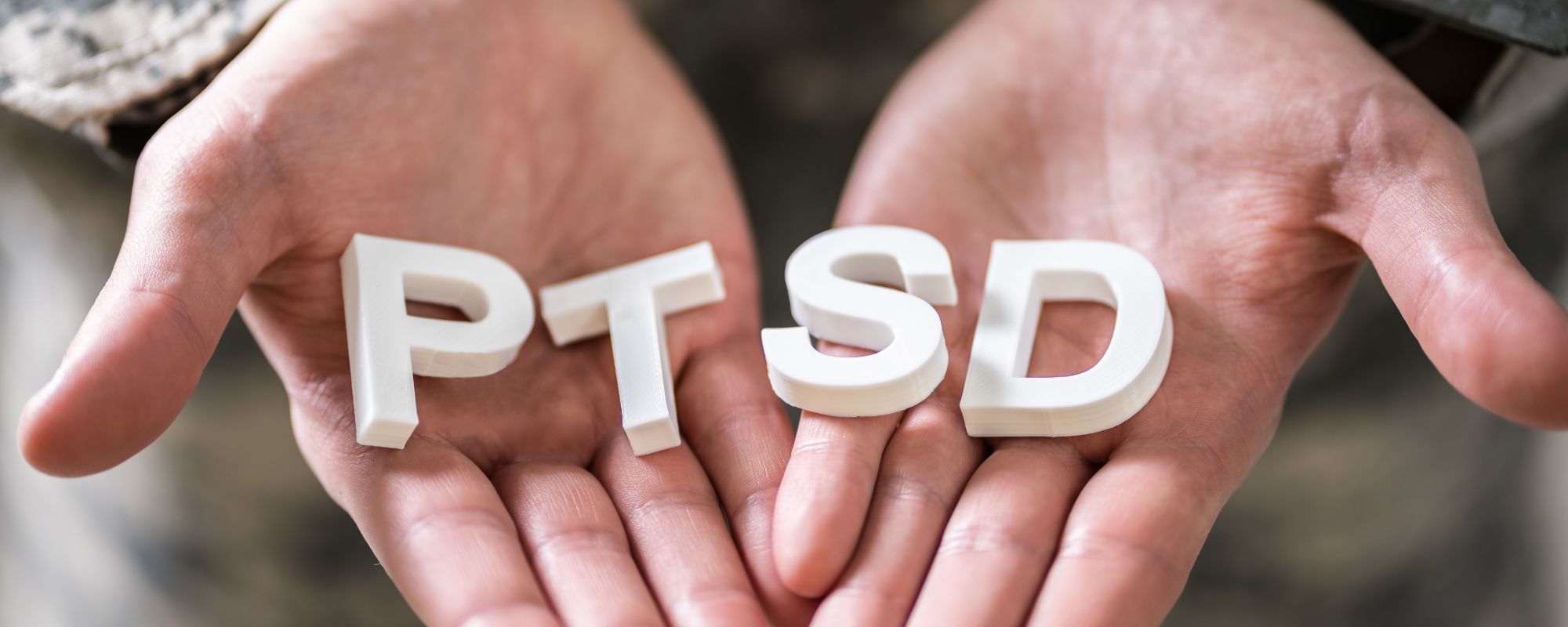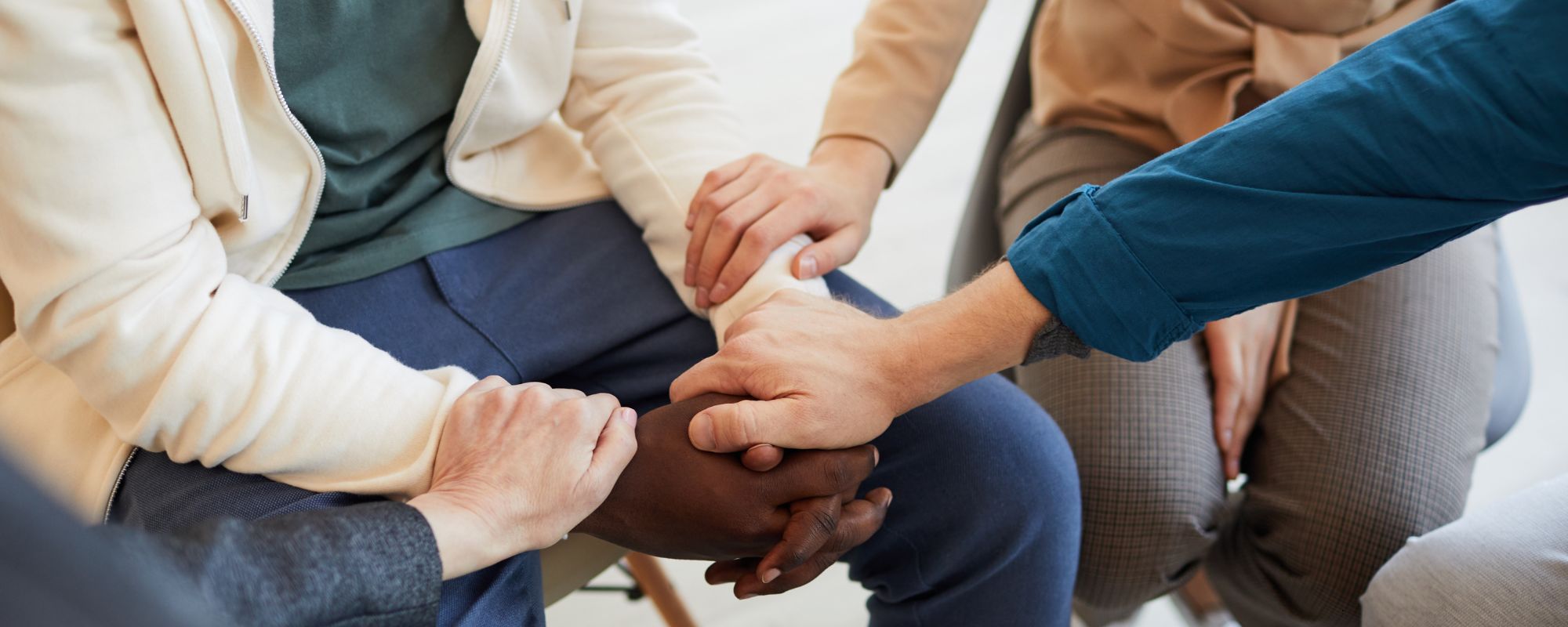Your heart begins to race. There’s a tightening in your chest. Your breathing becomes shallow, and you feel a sense of fright, even terror, wash over you. But can you pass out from a panic attack?
Having a panic attack — especially for the first time — can leave anyone mistaking the onslaught of these symptoms for a heart attack or make you worry that you could lose consciousness. Can you pass out from a panic attack, or worse, can you die from a panic attack? They’re two of the immediate realizations that might occur, panicking you further.
Perhaps the most pressing question is why panic attacks happen. They can be an underlying precursor to a panic or anxiety disorder — an amalgam of panic attacks in response to how we perceive and react to stress, lingering trauma, or other issues.
You may have had a mild panic attack once before, or you’ve had several, and they’ve been intensifying in frequency. If you don’t know how to respond or the practical steps you can take to manage them and address a potential panic disorder diagnosis.
What Is a Panic Attack?
A panic attack is an episode of intense fear that triggers severe physical reactions even when no obvious danger is apparent. Panic attacks are sudden, and although they aren’t life-threatening, a panic attack that happens without warning can make it even more distressing — frightening experiences that can leave someone living in constant fear of having another attack.
“Many people have just one or two panic attacks in their lifetimes, and the problem goes away, perhaps when a stressful situation ends,” notes the Mayo Clinic. But panic attacks, in fact, are more commonplace than we think; according to the Cleveland Clinic, up to 11% of people in the U.S. experience a panic attack each year.
Can You Pass Out from a Panic Attack?
One of the scariest aspects of a panic attack is a dizzying, disorienting sensation that you might faint. How long can you pass out after a panic attack? Fainting or passing out during a panic attack is rare, but some physical responses to panic can make it feel like you’re about to lose consciousness.
Why Panic Attacks Make You Feel Like Passing Out
Panic attacks begin when our bodies go into fight-or-flight mode, a stress response and survival mechanism that causes the release of adrenaline into the bloodstream — up to two and a half times more than usual — to prompt us to act quickly.
Your heartbeat and breathing will also increase as a means of sending blood to the muscles and oxygen to your lungs. However, this can also result in hyperventilation since your body perceives these changes as a response to a threat.
And when you breathe too quickly, your body expels too much carbon dioxide, disrupting the oxygen balance in your blood. This can result in lightheaded faintness, tingling in the hands and face, trembling, and weakness in your extremities (symptoms we’ll explore more below), making it feel like you might black out.
Why is fainting unlikely during a panic attack? Simply put, this rise in heart rate and blood pressure is contrary to the drop in blood pressure that usually triggers actual fainting.
Can You Die from a Panic Attack?
The short answer is no — although frightening, panic attacks are not fatal. A racing heartbeat, respiratory tension, and other severe physiological responses that accompany a panic attack may naturally lead you to fear that you’re having a heart attack for real. But since a panic attack does not inflict the same damage to your heart or surrounding organs as a heart attack can, death from a panic attack is ultimately exceedingly rare.
What Are the Signs and Symptoms of a Panic Attack?
Panic attacks are usually short-lived and subside almost as quickly as they began and may usually last no more than 30 minutes, with the most intense symptoms peaking at 10 minutes. A panic attack hangover — once it’s ended — can leave you feeling drained and physically spent.
When you experience a panic attack, your body sends you a barrage of signals that something is amiss — telltale signs and symptoms that are impossible to ignore:
- A racing or pounding heartbeat
- Pronounced chest pain
- Shortness of breath or hyperventilation
- Sweating, trembling, or shaking
- A feeling of choking
- Nausea
- Dizziness, lightheadedness, or feeling faint
- Tingling or numbness in your extremities
- A sense of unreality or detachment from your surroundings is often referred to as depersonalization
- A heightened sense of terror and/or a fear of losing control
Panic Attack vs Heart Attack
On the surface, it’s difficult to distinguish the differences between a heart attack and a panic attack since their key symptoms overlap. Panic attacks and heart attacks can happen quickly and intensely, but heart attacks generally begin slowly, and the chest pain or discomfort you may feel will worsen gradually, according to the American Heart Association (AHA). “These episodes might come and go several times before the actual heart attack occurs,” the AHA states.
While chest pain may originate in the mid-chest region for both panic and heart attacks, a panic attack’s pain will stay localized; a heart attack’s pain will typically gravitate to the left arm and jaw.
And where a panic attack is a strong physical reaction to a trigger or stressor, heart attacks are an indicator of underlying coronary issues. “A heart attack happens when the blood flow that brings oxygen to the heart muscle is severely reduced or cut off, usually by blockage of coronary arteries,” states the AHA.
“Although panic attacks are frightening, they’re not dangerous,” the UK National Health Service website states. “An attack will not cause you any physical harm, and it’s unlikely you’ll be admitted to (a) hospital if you have one.”
Looking for quality treatment for substance abuse and mental health that’s also affordable? Aliya Health Group's treatment facilities accept most major insurance providers. Get a free insurance benefits check now!
Check Your CoverageWhat Causes Panic Attacks?
There are various reasons why someone is prone to panic attacks cause. Experts contend that the relationship between your neurological and nervous system functions may play a role as well as environmental factors.
“People are hardwired to experience both anxiety and panic attacks,” states Ricks Warren, a psychologist with the University of Michigan, on the school’s website. “Some are more prone to worry and anxiety because they have a very sensitive nervous system. If they grow up with others who are worriers, they can learn to worry.”
“Some researchers think panic attacks are like ‘false alarms’ where our body’s typical survival instincts are active either too often, too strongly, or some combination of the two,” says the National Institute of Mental Health (NIMH).
But situationally, panic and anxiety attacks happen when what we consider a dangerous situation is triggered. For instance, if you’re squeamish about needles, you might experience panic when getting a vaccination, or if you tend to feel claustrophobic or afraid of heights, the risk of a panic attack increases when stuck in a crowded elevator or atop a high bridge or building.
“Panic attacks also can be triggered by subtler cues, like certain bodily sensations,” adds Warren. “A person could have a pain in the chest and interpret that as a heart attack. Or they feel lightheaded and think they’re going to pass out or are having a stroke.”
What Causes Panic Disorder?
A history of panic attacks is linked to the development of panic disorder. While research hasn’t concluded how panic disorders genuinely develop, the Cleveland Clinic hypothesizes that impairments to the amygdala, the part of your brain that handles fear and other negative emotions, may be partially responsible, as well as imbalances in other neurotransmitters.
There may also be a genetic component that runs in families. According to the clinic, there’s a 40% increase in inheriting a panic disorder if a first-degree relative has one.
Traumatic or adverse childhood experiences (known as ACEs) between the ages of 1 and 17 can also contribute to developing panic disorder. Mental illnesses, like depression or anxiety disorder also make one more susceptible to having a panic attack and subsequent possible panic disorder.
How Is Panic Disorder Diagnosed?
A proper diagnosis of panic disorder needs to be from a mental health provider like a psychologist or psychiatrist. They’ll conduct an evaluation to review:
- Your medical history to gauge if you have any conditions that could trigger panic attacks, like heart or thyroid disease or other physical issues
- The quantity and frequency of recurrent, unexpected panic attacks
- Behavioral symptoms, like avoiding situations or people that might trigger a panic attack or persistent worry about future possible attacks
According to the NIMH, panic disorder often originates in one’s late teen years or early adulthood, and women have a higher likelihood than men of developing it.
Get confidential help from our addiction and mental health treatment facilities located across the United States. Call to join one of our quality programs today!
Speak With Our Admissions TeamWhat Are the Signs and Symptoms of Panic Disorder?
Panic disorder can cause:
- Chronic panic attacks characterized by feelings of terror, anxiety and panic
- Fears of losing control or dying during panic attacks
- Persistent, daily worries about when the next panic attack might happen (To be diagnosed, you must have gone through one or more months of worrying about panic attacks after your last one.)
- Avoidance of certain places or situations attached to your panic attacks
- The same physical and psychological symptoms of a panic attack are listed in this article
How to Deal with a Panic Attack When They Happen
When you sense a panic attack is imminent and coming on or has already started, little can be done to stop it. The best course of action is to take a few steps to mitigate the symptoms until they subside:
- Don’t fight it: Panic attacks are like a tense cacophony of disturbing sensations. Focus on them. Be in the moment with what you’re seeing, feeling and thinking. Stay in the present and acknowledge that the experience is happening. Remind yourself — even when the symptoms feel like they’re overwhelming you — that a panic attack is temporary and that you’re safe. You won’t be passing out during a panic attack or die.
- Focus on your breathing: “Deep breathing can reduce symptoms of panic during an attack,” says the Cleveland Clinic. Because hyperventilation can exacerbate the shortness of breath and chest pains common to panic attacks, close your eyes and take deep, slow breaths. Try the 4-7-8 breathing technique — breathe for four seconds, hold your breath for seven seconds and exhale for eight seconds.
- Relax your muscles: Slowly, concentrate on trying to relax each muscle group that’s tensed up during a panic attack. Practice this in tandem with your deep breathing.
- Prepare a calming space: Move to a quieter, more comfortable area where you can sit down and relax until the intensity of the attack diminishes. If you’re driving, pull over and park. If you’re at work or the store, find a place to sit or go to the restroom for some quiet composure.
How Is Panic Disorder Treated?
Addressing panic disorder — and by extension, managing panic attacks — is most effective when seeking professional help at a treatment center where you can meet regularly with a counselor or therapist. Here, you can confirm with a diagnosis that you have panic disorder and take the steps to recover from it.
Research-based Psychotherapy for Panic Disorder
Psychotherapy is a type of talk therapy where you’ll sit one-on-one with a therapist experienced in panic disorders and get to the heart of your condition.
One of the most commonly employed treatments is cognitive behavioral therapy or CBT for short. CBT is a type of therapy that helps you identify and challenge the negative or anxious thought patterns that might contribute to your panic attacks. Through CBT, you’ll learn to reframe your thoughts, develop healthier, more positive responses, and work to reduce the frequency and intensity of your attacks.
According to the Mayo Clinic, with therapy, you may see your symptoms reduce within several weeks, with greater reduction within a few months.
Holistic Treatment for Panic Disorder
Employing a holistic recovery approach as a complement to psychotherapy is a way of acknowledging that your mind and body are ultimately interconnected — and that natural, holistic therapies work with your internal ability to recover.
If you’ve had a panic attack and employ the deep breathing we mentioned above, mindfulness meditation, a type of holistic therapy, will feel familiar. You’ll learn techniques to center your thoughts and become aware of the present moment, key skills not only to reduce anxiety but for any time. Yoga is another holistic therapy that combines physical postures, mindful breathing, and meditation to help reduce panic-inducing stress and anxiety.
Medication for Panic Disorder
Your doctor or therapist may sometimes prescribe medication if your anxiety, panic attacks, or symptoms are particularly severe:
- Selective Serotonin Reuptake Inhibitors, or SSRIs, are the most commonly prescribed antidepressant. Prozac, Paxil, and Zoloft are a few brand names of SSRIs that work to increase serotonin activity in the brain, which can help with symptoms of depression and reduce anxiety.
- Serotonin-Norepinephrine Reuptake Inhibitors (SNRIs) are also FDA-approved for depression and panic and anxiety disorders and work to boost serotonin and norepinephrine levels in the brain. As we can see in SSRIs, these neurochemicals are effective in mood regulation.
- Benzodiazepines, or benzos for short, are a type of medicine that can help slow down hyperactivity in your brain and nervous system — both of which are on overdrive during a panic attack. Benzos work specifically by releasing a neurochemical called gamma-aminobutyric acid, or GABA, to help temper your nervous system.
The Dangers of Benzodiazepines
Although benzos can help to minimize panic attacks and panic disorder, they are highly addictive if you use more than prescribed — leading to potential physical dependence. Withdrawal symptoms and seizures are also at risk if you stop taking the drug abruptly.
Moreover, increased anxiety — the problem benzos are meant to treat — can increase from misusing the drug. For these reasons and more, benzos should be prescribed as a last resort for short-term relief of panic disorder.
Find Professional Treatment for Panic Disorder
The NIMH dubs panic disorder as a condition when fear overwhelms — and it can create a perception that help is beyond reach or that panic disorder is too strong to treat. But the reality couldn’t be further from the truth.
Aliya Health Group’s numerous treatment centers across the U.S. offer specialized treatment for panic disorder, with a comprehensive approach to managing symptoms and improving your overall quality of life. Panic attacks or a panic disorder, even when the signs and symptoms are present, don’t need to overtake your sense of self or well-being.
Don’t hesitate to contact us today with questions or concerns about panic disorder treatment, cost, and insurance coverage. Our admissions team is available 24/7. Change your life with one call. We can help.
- https://my.clevelandclinic.org/health/diseases/4451-panic-attack-panic-disorder
- https://www.mayoclinic.org/diseases-conditions/panic-attacks/symptoms-causes/syc-20376021
- https://www.nimh.nih.gov/health/publications/panic-disorder-when-fear-overwhelms
- https://www.michiganmedicine.org/health-lab/panic-attack-vs-anxiety-attack-6-things-know
- https://www.mind.org.uk/information-support/types-of-mental-health-problems/anxiety-and-panic-attacks/panic-attacks/
- https://www.health.harvard.edu/staying-healthy/understanding-the-stress-response
- https://www.webmd.com/anxiety-panic/panic-attack-happening
- https://www.heart.org/en/news/2022/07/13/how-to-tell-the-difference-between-a-heart-attack-and-panic-attack
- https://www.webmd.com/anxiety-panic/panic-attack-symptoms
- https://www.nhs.uk/mental-health/conditions/panic-disorder/
- https://www.medicalnewstoday.com/articles/324417
- https://www.ncbi.nlm.nih.gov/books/NBK554406/
- https://my.clevelandclinic.org/health/treatments/24797-snri
- https://www.webmd.com/mental-health/addiction/benzodiazepine-abuse








